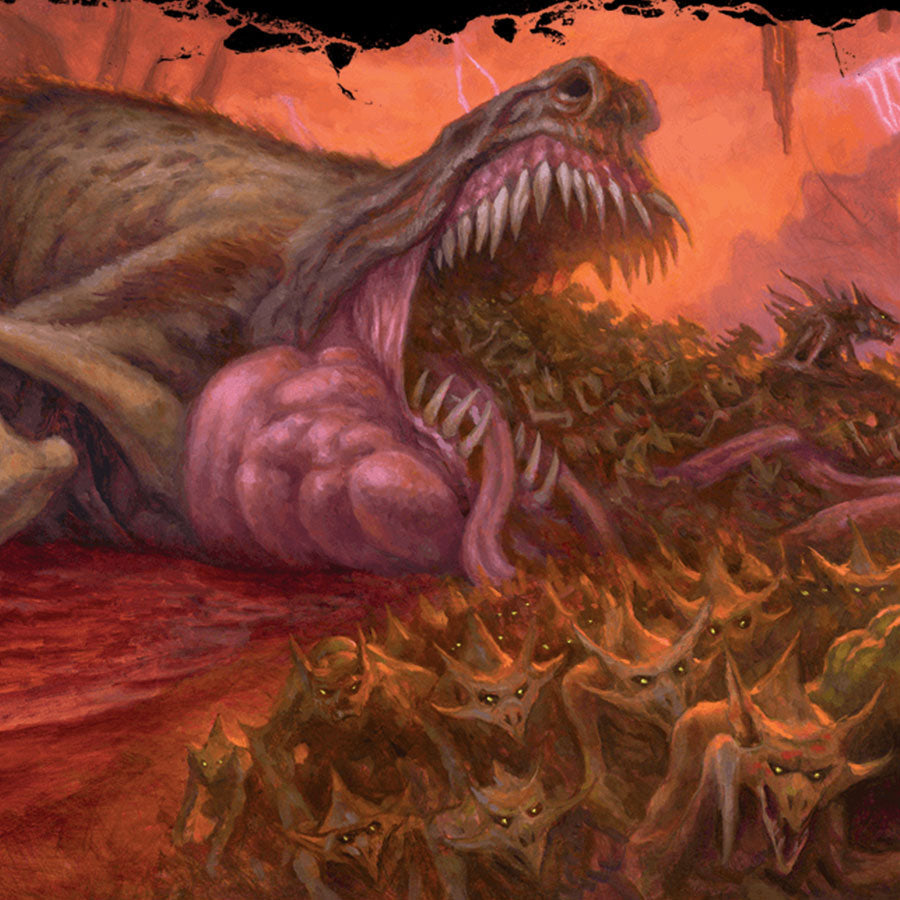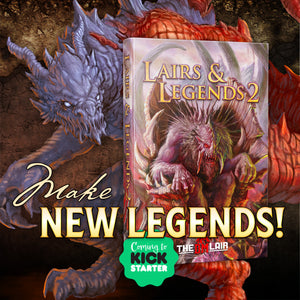5 Secrets DMs Should Never Reveal to Their Players

By Luke Hart
As a dungeon master, it’s incredibly tempting to lift the curtain for your players after a session ends. You want to share what would’ve happened if they’d taken a different path, the secret loot they missed, or how much you fudged that dice roll to save their lives. But here’s the counterintuitive truth: revealing that kind of out-of-character information can actually make the game worse for your players. It can reduce their sense of agency, break immersion, and drain the mystery right out of your world.
In this article, we’ll talk about a simple rule of thumb for what to reveal, five specific things you should keep behind the DM screen, and one key exception.
By the way, if you need a quick adventure to run for your group when you're in a pinch, check out all the one-shots we have to choose from. Grab an adventure, read it in about 15 minutes, and you’re ready to run your game!
Watch or listen to this article by clicking the video below.
The Golden Rule: If the Character Doesn’t Know It, the Player Doesn’t Know It
Let’s start here. This is the core principle you should always fall back on: if the player’s character doesn’t know something, don’t tell the player. It’s that simple. If the character didn’t discover a hidden passage, failed to uncover the villain’s motive, or never asked the right questions, that information should stay hidden. Most of the other points in this article are just specific applications of this one rule.
1. Things They Missed in the Adventure
Maybe they walked right past a secret door, failed a crucial perception check, or never searched the correct room for that hidden stash of gold and +1 daggers. After the game session, it’s so tempting to say, “You know, there was a magic ring behind the bookshelf you never checked!”
Don’t.
Revealing missed content cheapens the player experience. One, it can trigger metagaming. Players may "decide to go back" next session under flimsy pretenses, all because they know they missed something. And two, you might want to reuse that content later. Good DMs recycle unused encounters and secrets for future adventures. If your players already know what was there, it’s off the table.
But the most important reason? You’re robbing them of the mystery. The unknown is part of what makes D&D fun. Don’t take that away.
2. “What Would Have Happened If…”
We’ve all been there. A player approaches you after the game and asks, “Hey, what would’ve happened if we’d tried to negotiate with the goblin chief instead of killing him?”
Your answer should be, “You’ll never know,” and a sly grin.
As much as players want answers to hypothetical situations, not knowing is more powerful. It creates a sense of consequence and tension. When players realize that their choices actually close doors—or open new ones—they begin to feel that the world reacts to them. Revealing the “what ifs” only undermines this feeling. Plus, holding back those secrets keeps their curiosity alive and encourages more thoughtful decision-making in the future.
3. If You Fudged Anything
Never, ever, ever tell your players that you fudged something. Whether it was a dice roll behind the screen, the answer to a riddle, or the behavior of an NPC—you keep that to yourself.
Why? Because revealing a fudge undermines player agency. If they know you changed the outcome to save them or make things easier, they’ll start to believe their actions and choices don’t really matter. And that belief will kill your game. You want your world to feel real and reactive—not like a curated amusement park where every track is laid out in advance.
So what’s the alternative? Don’t fudge—or at least don’t fudge where it counts. I roll most of my dice in public. The exceptions are specific rolls like death saves, which I intentionally keep secret. If I do fudge, it’s on minor things that don’t affect outcomes or player decisions—like whether a random encounter happens when it’s not dramatically appropriate.
4. Monster Stats
Do not reveal monster stats to your players. This includes hit points, AC, resistances, weaknesses, and yes—even the monster’s name. Let them wonder, speculate, and feel that tension.
The benefit of mystery far outweighs the momentary satisfaction of saying, “It had 12 hit points left!” during your after-session recap. Keeping players in the dark adds drama and keeps them guessing. It makes them cautious. It makes them engaged. Let them use Identify, make Nature or Arcana checks, or ask around town to learn more. That’s part of the game!
5. What Was Planned vs. What Was Improvised
This one might surprise you, but trust me—it matters. Never reveal what you made up on the fly versus what was prepped in advance. Why? Because players want to believe the world exists without them. That the cave full of gremlins was always there, the barmaid always had that backstory, and the villain’s plan was laid long before the characters stumbled upon it.
When you say, “Yeah, I made all that up on the spot,” you shatter the illusion. You remind them that this is all a construct and that their decisions don’t really matter because nothing is set in stone. You reduce their immersion and buy-in, two things critical to a satisfying D&D game.
So let them believe the world is big, complicated, and alive—even when you’re inventing it one brick at a time.
When It’s Okay to Break the Rule
There is one exception to these “do not share” guidelines: to resolve conflict and maintain table peace. If a rule dispute or argument breaks out and revealing information will smooth things over, do it. For example, if a flying monster is divebombing the party and they’re angry they don’t get opportunity attacks, it’s okay to say, “This creature has Flyby Attack; it’s a specific ability.” You’re not spoiling the fun—you’re clarifying the rules and avoiding drama.
Outside of that? Keep your secrets.
Easy-to-Prep One-Shot Adventures
Whether you're too busy to prep an adventure and game night is fast approaching or you'd just rather use a professional pre-made adventure for your group, our 5e and PF2e one-shot adventures have you covered.
- Dozens of adventures, all levels of play
- Lightning fast to prep
- Read-a-loud text, NPCs, area descriptions, roleplaying notes, encounter notes
- Digital maps (GM and player versions, gridded and un-gridded)
- Everything you need to play!
Gone are the days of just winging it and hoping for the best. Check out everything our one-shot adventures have to offer today!
-
Posted in
Game Master How-To Articles







